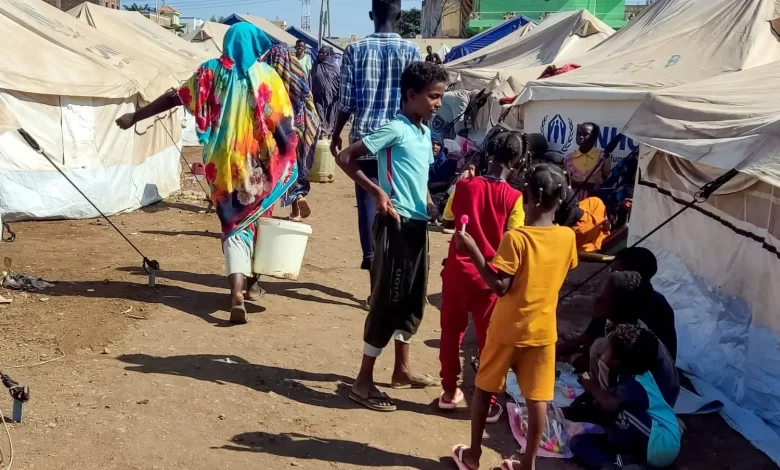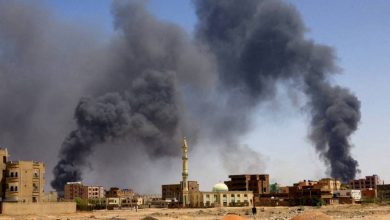Sudan: Drones Rain Down on Atbara… Who Is Behind It?

Sudan Events – Agencies
Children were pulled alive from the rubble of their home early Wednesday after what appeared to be a “suicide” drone struck in the city of Atbara, Nile River State, northern Sudan. No party immediately claimed responsibility for the attack, but fingers pointed at the Rapid Support Forces (RSF), which have been fighting the army for control of the country for nearly 18 months.
Over four consecutive days, Sudanese army air defenses intercepted dozens of drones targeting various locations in the state, though the launch sites remain unidentified.
Local sources told Asharq Al-Awsat that drones targeted residential buildings associated with the eastern camp of the artillery corps in Atbara, one of the Sudanese army’s oldest branches.
Residents in the city reported, “We woke up to the sound of a violent explosion that shook the neighborhood.” They added that the drones directly targeted a military unit belonging to the army.
Since the conflict erupted on April 15, 2023, accusations have frequently been directed at the RSF for targeting civilian areas under army control. However, the RSF has consistently denied involvement in drone attacks.
A security source told Asharq Al-Awsat, “There is insufficient information so far about the party behind Wednesday’s drone strikes or their launch sites.” He added that given the ongoing conflict, “It’s natural to accuse the RSF, as the targeted areas are under army control.”
Unidentified drones have increasingly targeted army positions in northern and eastern Sudan. Just days ago, the airstrip of the 3rd Infantry Division in Shendi, Nile River State, was attacked by four suicide drones.
Last July, Sudanese army commander General Abdel Fattah al-Burhan survived an assassination attempt when unidentified drones attacked a military parade he was attending in Jebeit, eastern Sudan.
That attack raised questions about the source of the drones and whether they came from the RSF or a third party seeking to eliminate the army commander. Months earlier, around 15 people—mostly civilians—were killed, and others injured in a drone strike on a communal meal organized by the “Al-Baraa bin Malik Battalion,” an Islamist-affiliated group. This incident led some to suspect “friendly fire” might be involved.
The strike on this group came days after comments by Deputy Army Commander Shams al-Din Kabashi regarding armed groups operating outside the army, hinting at the need to regulate “popular resistance” and Islamist-aligned volunteers within army camps.
Atbara also experienced a sudden power outage last Sunday, coinciding with the sound of army air defenses responding to drone attacks. This marked the fourth consecutive drone assault in the area. Eyewitnesses reported that the drones directly targeted the city’s airport.
Senior RSF sources denied any involvement in the recent drone attacks on Nile River State or other areas outside their frontlines. Speaking to Asharq Al-Awsat, they claimed, “What is happening is likely internal score-settling within the army itself.” They further suggested that Islamist factions within the army were sending strong messages to military leaders, asserting control over decision-making within the armed forces.
The RSF sources added, “We have long warned that current army leaders lack real authority. Decisions are controlled by the Islamic movement, which ignited this war and seeks to prolong it to reclaim power.”
A military expert, speaking anonymously, suggested that the drones might indeed belong to the RSF, though a third party could also be involved. He noted that the RSF likely possesses drones capable of reaching any part of the country.
The expert speculated that the ongoing drone attacks over four consecutive days in Nile River State might be a message from the RSF demonstrating their ability to extend the conflict to northern Sudan, which has largely remained untouched by the fighting since the conflict began.
However, he dismissed the possibility of a third party allied with the Sudanese army launching the drone strikes, arguing that such actions would terrorize civilians and benefit the RSF, their primary adversary. He instead suggested that a security breach may have enabled the perpetrators to target military or civilian sites within Atbara.



